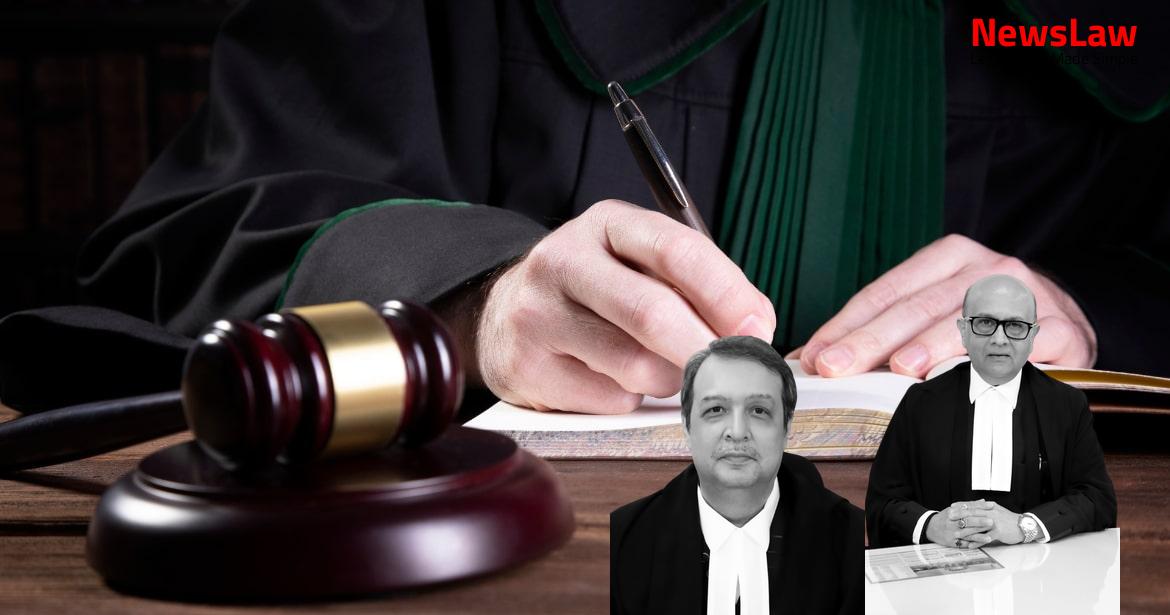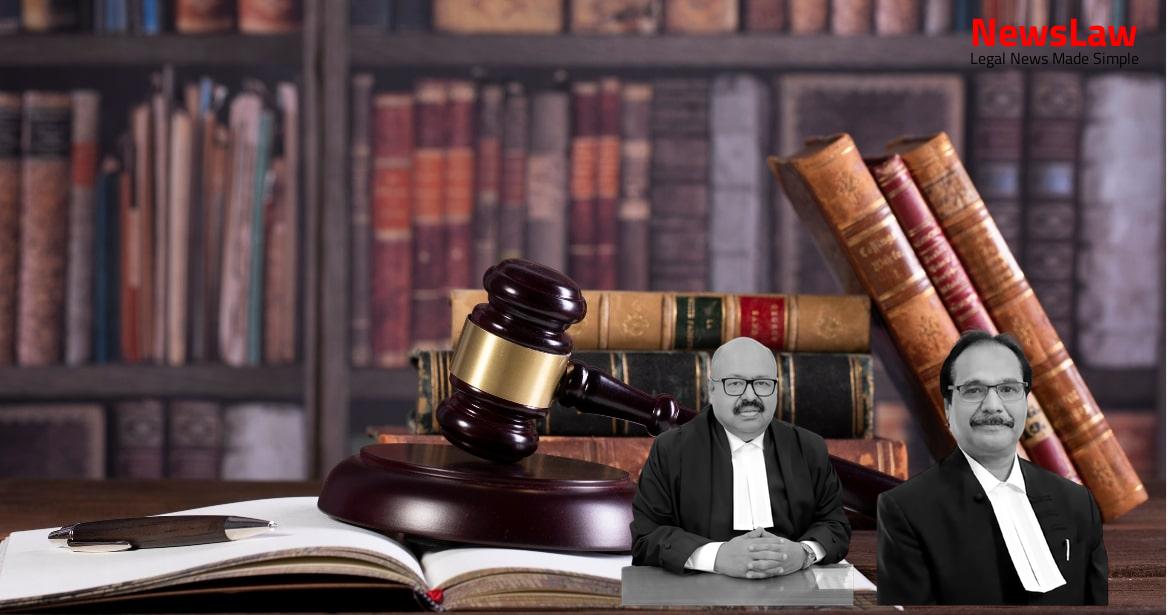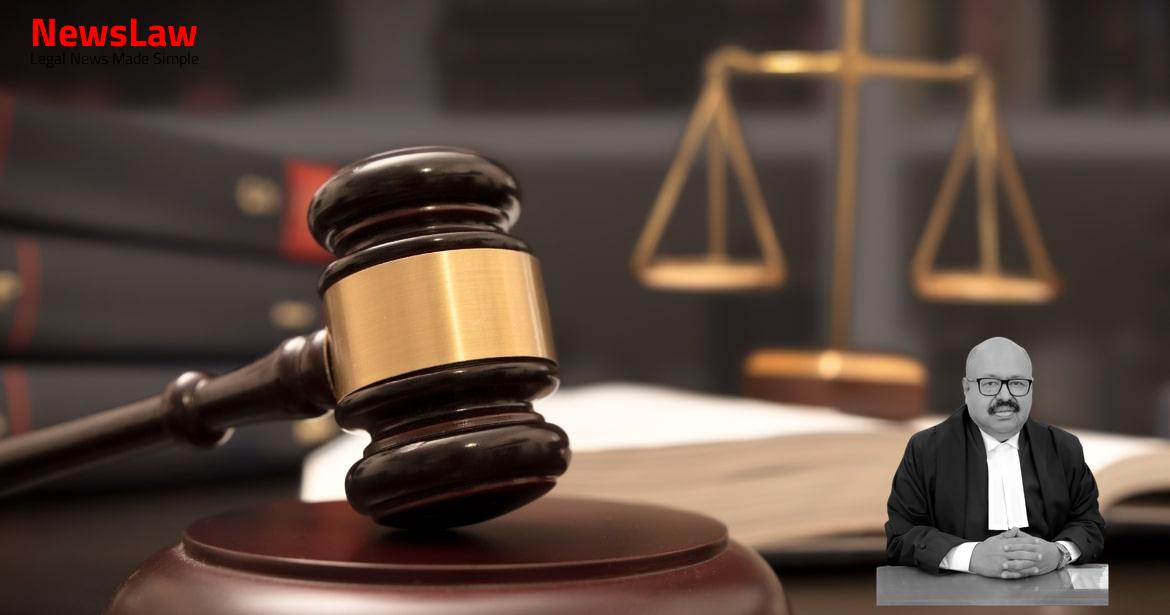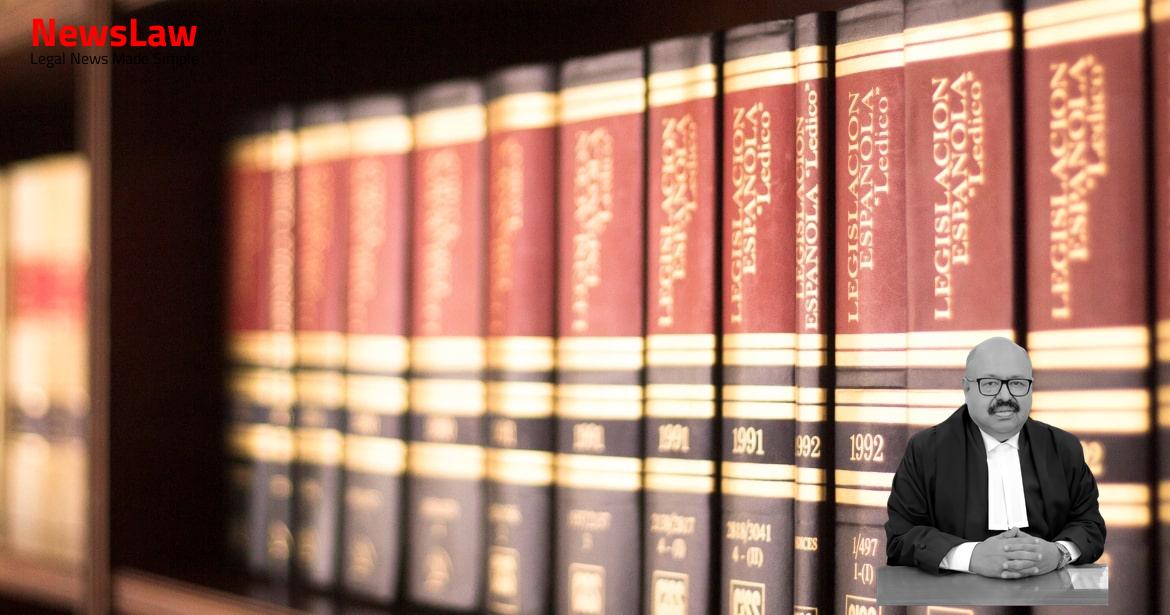In the case involving a school management dispute, the High Court provided a ruling regarding service conditions. The judgment addressed issues related to staff employment continuity and fair service conditions at APS No 2, Roorkee. Stay informed about the latest updates in this legal matter!
Facts
- The High Court dismissed the appeals and affirmed the judgment of the Single Judge in the writ petition filed by the respondents.
- The Division Bench later dismissed the Special Appeal against the Single Judge’s judgment.
- The Court stayed the operation of the judgments and orders of the High Court pending further orders.
- The conditions for the stay included that the respondent-employees continue on the rolls of Army Public School No 2 and receive their emoluments and conditions of service at par with other employees.
- The two questions of law for consideration were whether the Army Welfare Education Society is a ‘State’ under Article 12 and whether a writ petition under Article 226 can be maintained against it in a service dispute.
- The Single Judge issued a mandamus to the petitioners regarding service conditions of the staff during the pendency of the proceedings.
- The claim for reinstatement was rejected by the Court, and the Managing Committee appealed against the order.
- The teaching and non-teaching staff were employees of St. Gabriel’s Academy.
- AWES took over the school after the lease ended.
- AWES agreed to pay gratuity, earned leave encashment, and sixth pay commission to the staff.
- The school can be run as per AWES rules.
- Salary payment as per AWES standards to commence from 1 January 2016.
- AWES will not terminate staff if allowed to take over.
- Staff of the erstwhile school will continue with the present school conducted by AWES.
- Accounts will be handed over to the school principal.
Also Read: Arbitration Dispute Resolution: Key Ruling by the Supreme Court of India
Issue
- The key issue for consideration is whether the High Court was justified in entertaining the writ petition filed by the respondents under Article 226 of the Constitution against the appellant society.
Also Read: Judgment on Tender Cancellation: Upholding Fairness and Public Interest
Arguments
- Mr. Setalvad argued that the case does not fall under the third exception due to the non-statutory nature of the college.
- He criticized the single Judge for entertaining the writ petition filed by the respondents against the service conditions in APS No 2, Roorkee.
- The service conditions at APS No 2 were highlighted as being in contravention to those followed in other schools run by the appellant society, creating disparities among employees.
- The Provincial Superior of the Institute of Brothers of St. Gabriel’s was noted as the Chairman of the School Management Committee of St. Gabriel’s Academy.
- The appellant society was burdened with safeguarding the service conditions which were erroneously placed on them.
- It was suggested by Mr. Mullick that the society could adjust the petitioners in their new school if they were concerned about their welfare.
- There was emphasis on the lack of privity of contract between the appellant society and the staff of St. Gabriel’s Academy.
- Concerns were raised regarding the seniority and terminal dues of the teaching and non-teaching staff based on their past service.
- Mr. Sankaranarayanan argued that the public element in the transaction of management change at the school must be considered.
- The argument was made that the writ petition was not maintainable against an Army school due to the lack of central government control and statutory regulations.
- The financial aspects and regulations governing staff emoluments were highlighted according to AWES Rules and Regulations in 2016.
- The welfare activities were supported primarily by private funds from military personnel.
- The appellant society was portrayed as a ‘State’ under Article 12 of the Constitution based on various factors like address, committee members, and financial management.
- It was stated that the appellant had no role in the affairs of St. Gabriel’s Academy which was now absorbed by the society.
- The argument was made that the appeal should be allowed, dismissing the writ petition as lacking merit.
- Permission to engage a private lawyer is a serious issue
- Appellant appointed a private lawyer to contest matters
- Deputy Commandant of Bengal Engineering Group engaged a private lawyer without permission
- No illegality, perversity or jurisdiction error in the impugned judgment
Also Read: Case of Promotion Policy: Ravikumar Dhansukhlal Maheta vs. High Court Of Gujarat
Analysis
- The Court considered whether the private school was discharging public duty.
- The Court discussed the nature of the relationship between the school administration and its employees.
- It was emphasized that the service conditions and salary of the employees of the school could not be unilaterally altered to their disadvantage.
- The Court delved into the concept of legitimate expectation and its application in this case.
- It was noted that the doctrine of legitimate expectation could only be invoked by those with dealings or transactions with an authority.
- The Court examined the public law element in the dispute between the school and its employees.
- A private company carrying on banking business as a scheduled bank cannot be termed as an institution or a company carrying on any statutory or public duty.
- A private body may be amenable to writ jurisdiction only where it becomes necessary to compel such body to enforce any statutory obligations or obligations of public nature.
- Power of judicial review under Article 226 of the Constitution can be exercised by the High Court even if the body against which an action is sought is not a State or an authority, but there must be a public element in the action complained of.
- Judicial review is designed to prevent abuse of power and neglect of duty by public authorities.
- A private body may be amenable to the jurisdiction under Article 226 of the Constitution if it is not a ‘State’ within the meaning of Article 12 and is discharging public functions.
- The doctrine of legitimate expectation operates in both procedural and substantive matters in public law.
- Legitimate expectation must be based on a right and be justifiably legitimate and protectable.
- Legitimate expectation must arise from an express or implied promise, established practice, or custom followed by an authority.
- Legitimate expectation arising from sporadic, casual, or random acts is not valid. It must be reasonable, logical, and founded on law or custom.
- The scope of mandamus is determined by the nature of the duty to be enforced rather than the identity of the authority against whom it is sought.
- Section 23 of the 2009 Act outlines qualifications and conditions for teachers’ appointment.
- Sub-section (3) of Section 23 states that salary, allowances, and service terms for teachers will be as prescribed.
- Section 38 empowers the appropriate Government to make rules.
- Section 38(2)(l) allows for the prescribing of salary, allowances, and service terms of teachers under Section 23(3).
- The ‘appropriate Government’ is defined as the State Government where the school is located.
- Article 226 of the Constitution grants High Courts the power to issue writs to enforce rights and give directions to governments.
- Article 12 of the Constitution includes ‘State’ as all local and other authorities under the control of the Government of India.
- Article 39(d) aims for equal pay for equal work for men and women.
- It is suggested that rules be made under Section 23 and Section 38(2)(l) considering Article 39(d) of the Constitution.
- In the case of Ramesh Ahluwalia, the earlier decisions of the court in K. Krishnamacharyulu, Federal Bank, Sushmita Basu v. Ballygunge Siksha Samity, and Delhi Public School v. M.K. Gandhi were not brought to the attention of the Hon’ble Judges.
- The decisions in K. Krishnamacharyulu, Federal Bank, Sushmita Basu v. Ballygunge Siksha Samity, and Delhi Public School v. M.K. Gandhi were not considered in the Ramesh Ahluwalia case.
- The relevance and impact of the earlier decisions of the court were overlooked in the Ramesh Ahluwalia case.
- The omission of referring to the earlier decisions in K. Krishnamacharyulu, Federal Bank, Sushmita Basu v. Ballygunge Siksha Samity, and Delhi Public School v. M.K. Gandhi in Ramesh Ahluwalia was noted.
- The appellant society is not considered a public or Government authority in its relationship with its employees.
- Due to this, the doctrine of legitimate expectation does not apply to the facts of the present case.
- The submission of the respondents regarding the applicability of the doctrine is thus countered.
Decision
- The order directed AWES to take over the management of the school, allowing the teaching and non-teaching staff to continue with pay adjustments as per Army Public School standards.
- The arrangement was temporary pending litigation outcomes and did not impact the parties’ contentions.
- Contempt proceedings were halted until the next listing date.
- No disturbance was to be made to the services of teaching and non-teaching staff at the Roorkee school during this time.
- A subsequent order set deadlines for staff selection and termination of St. Gabriel’s Academy staff before establishing APS No 2 Roorkee.
- The judgment highlighted the need to resolve disputes amicably, ensuring staff employment continuity and fair service conditions.
- To facilitate final dispute resolution, a meeting between school authorities and employee representatives was proposed.
- The High Court’s judgment was overturned, and the proceedings were adjourned for alternate arrangements.
- The appellant society was barred from dismissing the respondents and changing their conditions to their detriment.
- A meeting within a week and an adjournment of proceedings by four weeks were slated to aid in resolving the dispute.
Case Title: ARMY WELFARE EDUCATION SOCIETY NEW DELHI Vs. SUNIL KUMAR SHARMA (2024 INSC 501)
Case Number: C.A. No.-007256-007259 – 2024



